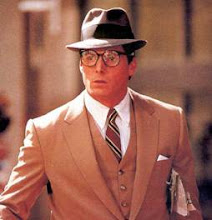My favorite sections of Writing For Story were "The New School for Writers" and "Stalking the True Short Stories." There were a few short lines I circled. For example, "...the short story was the greatest training ground that literature has ever known. For a hundred years it provided both a livelihood and a classroom for almost every major American writer" (Franklin, 23).
I never thought of short stories like that. I've never had a class concerning short stories, I've never been told they were anything more than fluff - the building grounds for fiction, novels, colossal works of prose. Who knew they were so important; that the greatest American writers perfected their craft by writing short stories - changes my perspective on writing, on being a writer.
Also, "...human action is taken for one purpose and one purpose only, which is to solve a complication. Without complications we would all be as inert as stop signs" (Franklin, 74). So that's the heart of narrative, of story - complication. Writing without complication isn't just boring, it's not true, it's not alive. But what isn't complicated; what in life is too simple to write about. I suppose that means I should search for the conflict in story. I should seek it out and detail it, delve into its knowns and unknowns, break it apart and resolve it. If I do that, and do it effectively, will I be a better writer?
Subscribe to:
Post Comments (Atom)

I would say that yes, you'd be a better writer :)
ReplyDeleteBut actually, I thought that your comment about short stories was interesting because I always think the opposite--that fictional short stories must be the hardest genre to write, because one has to be able to develop so much effectively in such small of a space.
Totally agree with you on the "conflict." I hadn't even really thought about it in terms of my writing and outlining and it seems like something so simple and straightforward that I should have always thought about.
ReplyDeleteYeah, I agree with Marina. It's like you said, Myles: complication is everywhere. I felt like this book was saying that only certain stories with certain types of complication were worthy of being written about, and I had a bit of trouble with that. It's like the fly on the nose example - there's no major human drama, so it's not a good story. It seems like we're going to have to be really picky about the stories we choose to write. For example, we can only write about complications with happy endings? That's hard.
ReplyDelete